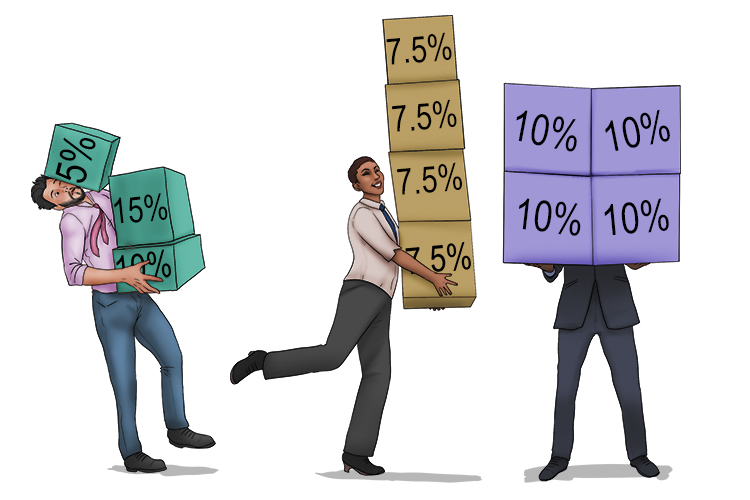Shareholder(s) – people who own shares is a limited company; each shareholder is a part owner of the business
(Pronounced shair-hol-duh)
Remembering the meaning of shareholder is easy if you split up the word and reverse it as follows:
A shareholder is someone who holds a share (shareholder) in a company.

A limited company (in the UK) or corporation (in the United States) legally allows for a business to fail still owing money to the government in tax, any supplier they haven’t yet paid, wages to staff, energy suppliers or anyone else. If there is not enough money after every asset is sold, these people can then not come after any of the owner’s personal possessions such as a house or car.
If you have a company that is not Ltd or incorporated, and it fails, then anyone who is owed money can take you personally to court and demand to be paid.
In order for a limited company or corporation to be set up, a decision needs to be taken as to how many shares of the company to create, and who gets what proportion of the shares.
If there is only one person setting up the limited company/corporation the minimum quantity of shares that the company can have is one. This is common when someone is a sole trader and director.
You could choose to set up with 10 shares instead with the thought of allowing someone to buy into the company at a later date as an enticement to join the company.
Three people could set up a Ltd/corporation with 300 shares and give themselves 100 shares each. It’s really up to the new owners.
These new owners are called shareholders.
When a company becomes large, the owners may want to sell some shares to people for a cash flow injection into the company on the agreement that money will be passed to all shareholders every year as a lump sum called a dividend. Despite owning a share in the company, these shareholders may not have any involvement in the day to do running of the company.




